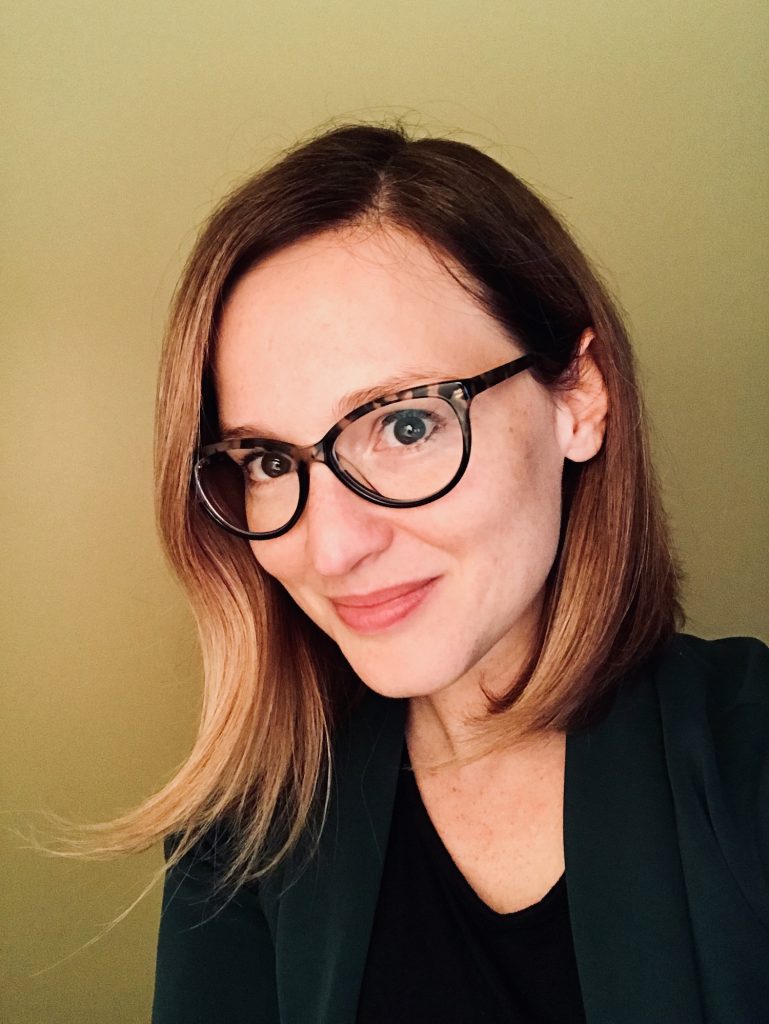
Meet Laura S. McKee
Coordinator of Writing Across the Curriculum
Franklin College of Arts and Sciences
Can you briefly introduce yourself and share your background and experience in writing programs?
Most recently, I was a lecturer in MIT’s Writing Rhetoric and Professional Communication Program (WRAP) for five years. In that role, I taught writing and communication in collaboration with faculty across STEM fields, including Mechanical Engineering, Computer Science, Robotics, and Materials Science. I’m actually returning to the USG after several years away. Before MIT, I taught writing at the University of West Georgia, where I co-directed, with Professor Rebecca Harrison, the STEAM composition program, a collaboration between the English department and the College of Science and Mathematics to offer STEM majors STEAM-themed first-year writing courses. I also have a background in creative writing and poetry, which I argue, prepared me to parse and analyze complex technical writing. I love writing and thinking about writing in all disciplinary contexts!
What have you learned about teaching writing across the disciplines from these experiences?
Writing is a powerful tool in learning. Many of my students in STEM courses have expressed how they came to better understand technical content as well as their own research through various writing activities and assignments. That process wasn’t neat–it was messy and required not just rethinking language or sentences or paragraph organization but working through their own understanding in complex, nuanced ways: identifying where they needed more reflection, more development, more information to deepen their own understanding. Often, writing is considered a separate set of skills that one then applies to different contexts, but in my experience, writing in the disciplines supports the cognitive processes of learning in a multi-faceted way.
What’s your favorite pedagogy-of-writing best practice?
This is a hard one! If I had to choose one practice that is a must for me in all disciplinary contexts, it would be peer review. When peer review works well, it empowers students to critically evaluate their own writing as well as the writing of others. Peer review is a fantastic opportunity to build community in the classroom, too.
What do you hope students take away from WIP courses? How do students benefit from the writing-intensive nature of these curricular experiences?
I have a lot of hopes for students in WIP courses! If I had to narrow it down, say, to two things, they would be 1) that students feel empowered by the writing process and feel confident in their ability to navigate different rhetorical situations and genres, even if they’ve never encountered them before and 2), I hope students embrace the sometimes cognitive messiness of the writing process as a way to grapple with all kinds complexities, including the content of their WIP classes.
Why is it important that students write in their major programs of study and throughout their undergraduate careers?
Writing supports learning in complex ways, including critical thinking, and one can’t improve, or even maintain, writing skills if they aren’t practiced consistently. More practically, writing and communication are so important in many fields and professions–and having agility as a writer (the ability to write well in different forms, genres, styles) comes from the experience of writing in all kinds of contexts and classes.
In your view, what makes WIP unique, and what excites you about working with WIP faculty, TAs, and students?
I’m delighted to work with WIP and am already so impressed by the vision and breadth of the program. In particular, I appreciate the collaborative spirit of WIP and look forward to engaging with faculty, TAs, and students and across Franklin College to explore how writing and communication can support learning, especially in STEM fields.
How do you envision contributing to UGA’s culture of writing?
Through my work with WIP and the Writing Center, I’d love to support even more cross-disciplinary exchanges and interdisciplinary writing initiatives here at UGA, especially ones that foster collaborations between STEM fields and the Humanities.
Can you share your own writing interests and share a bit about your publications (like your forthcoming book!)?
My first collection of poetry, CREATURE, WING, HEART, MACHINE is forthcoming from Zone 3 Press this October. I have a few very nascent writing projects, both poetry and prose, that I can’t really describe yet, but everything I’m writing now explores subjects that intersect with science and technology.
Finally, could you share a favorite quote, book, or writing tip that reflects your passion for writing?
Emily Dickinson famously wrote: “If I feel physically as if the top of my head were taken off, that is poetry.” If you’ve ever recommended a book or an article or a poem to a friend accompanied by a “mind-blown” emoji, you know this feeling, too. How do we get there as writers? The most interesting writing, in its early stages, is a process of discovery and discovery requires asking a lot of questions for which there are no clear cut answers (yet). This is true even for technical writing if we consider the process of technical inquiry part of that process, which I would argue it very much is. How is this a tip? Before beginning any writing task, budget time for this process. The bigger and more complex the writing task, the more time you need to schedule for free-form brainstorming and exploratory drafting.